
Freedom of expression, a fundamental human right
Freedom of speech is a bellwether: how any society tolerates those with minority, disfavored, or even obnoxious views will often speak to its performance on human rights more generally. In international law, access to information and free expression are two sides of the same coin, and both have found tremendous accelerators in the Internet and other forms of digital communication. At the same time, efforts to control speech and information are also accelerating, by both governments and private actors in the form of censorship, restrictions on access, and violent acts directed against those whose views or queries are seen as somehow dangerous or wrong. From our earliest days, when we were called The Fund for Free Expression, we have fought all forms of repression of speech, in all media, around the globe.
Freedom of expression is the possibility that people have to freely say, express and disseminate what they think without being harassed. This is civil and political, related to the sphere of public and social life, and characterizes democratic systems. In democracy, it is fundamental because it allows debate, discussion and the exchange of ideas between political actors and other members of society around issues of public interest. This is why a society where there is no freedom of expression should not be considered democratic.
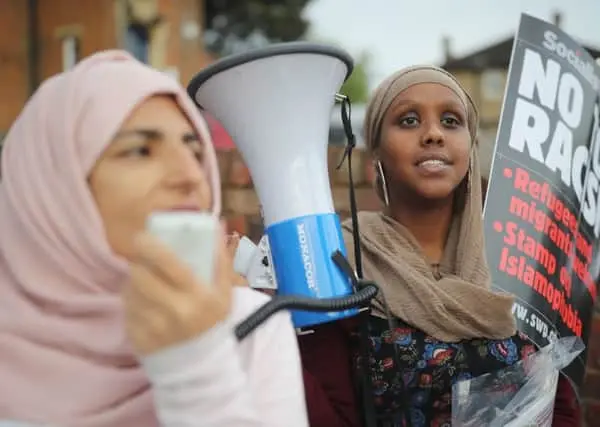
On the other hand, it is a real and concrete manifestation in the public space of another freedom essential for the personal fulfillment of human beings: freedom of thought. However, this implies duties and responsibilities to protect the rights of third parties, the State, public order or the moral health of citizens. For example, those who propagandize in favor of war, advocate hatred, express racial or religious intolerance, or incite violence or illegal actions incur excesses.
One of the characteristics of societies with full freedom of expression is the right of the media (press, radio and television, both traditional and digital) to investigate, report and disseminate information without any type of limitations, such as prior censorship, bullying or harassment. However, for the American Convention on Human Rights (ACHR), freedom of the press cannot be attacked by indirect means, such as abusive control of the supply of paper (in the case of newspapers), radio frequencies, or devices used in the dissemination of information, which prevent the free dissemination of ideas and opinions.
According to the United Nations (UN), freedom of expression is a human right, and is included in article 19 of the Universal Declaration of Human Rights, which establishes: “Everyone has the right to freedom of opinion. and of expression; This right includes the right not to be disturbed because of one's opinions, to investigate and receive information and opinions, and to disseminate them, without limitation of orders, by any means of expression.
Limitations on freedom of expression
Freedom of expression also entails responsibilities on the part of the subjects who express their ideas, opinions or thoughts. In each particular case, a weighing of the fundamental rights that collide must be carried out to know which one has been violated. However, at a general level, it can be stated that the following are limitations to freedom of expression. The right to honor, privacy, youth and one's own image are fundamental rights that could restrict freedom of expression. This applies when the opinions expressed are insulting, violate dignity and have no relation to the idea or thought that is desired to be expressed. Public relevance is another concept that has an influence, in certain cases, on freedom of expression. These are opinions that deal with facts of general interest and those referring to public persons.
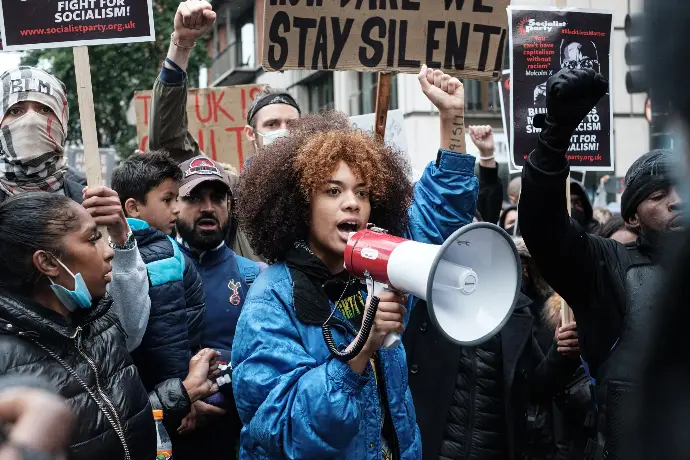
Examples of possible expression crimes:
- Humiliation or contempt for a person or group.
- Justification or glorification of terrorism or the humiliation of its victims.
- Insults against public officials, institutional bodies.
- Hate crimes or incitement to violence against a person or groups.
- Denial of genocidal acts.
- Freedom of expression is a fundamental right of all people. The main foundation is the guarantee of pluralism in a democratic society.
Any subject, regardless of their ethnicity, religion, social class, has the right to seek, receive, express ideas, opinions and thoughts by any means without fear of being censored. The limitations on this freedom of expression will be in direct relation to other fundamental rights that must be weighed based on the constitutional precepts and according to the circumstances of each particular case.
The apology of hate
All people have the right to freedom of thought, conscience, religion, opinion and expression. However, this right may be subject to certain restrictions to ensure that it does not conflict with other rights, such as the right not to suffer discrimination.
The UN Hate Speech Strategy highlights concerns that around the world we are witnessing a disturbing surge of xenophobia, racism and intolerance. Neo-Nazi and white supremacist movements are advancing in places like Europe and the United States, and the public discourse of “us versus them” is becoming a weapon in many places around the world to reap political rewards with inflammatory rhetoric that stigmatizes and dehumanizes minorities, migrants, refugees or women.
International human rights standards establish that any expression of national, racial or religious hatred that constitutes direct incitement to discrimination, hostility or violence against a vulnerable group of people, often known as "hate advocacy", must be prohibited. These norms also establish that these types of restrictions on freedom of expression must not only be prescribed by law but must, above all, be necessary and strictly proportional to contribute to the legitimate objective of eradicating discrimination.
International human rights standards establish that any expression of national, racial or religious hatred that constitutes
direct incitement to discrimination, hostility or violence against a vulnerable group, often known as "hate advocacy", must be prohibited.

The Guardians of Information: The Role of Journalists in the Protection of Human Rights




When Speaking Costs Lives: Journalists in Drug-Riddled Colombia

Women in the Media: Confronting Harassment and Discrimination in Journalism
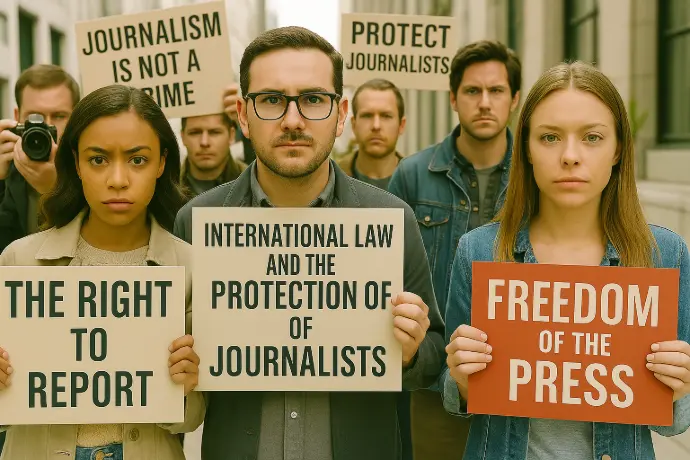
The Right to Report: Global Regulations and the Defense of Reporters

Special Report: The Situation of Journalists in Prisons Around the World

Journalism Without Barriers: The Fight for Accessibility of Information
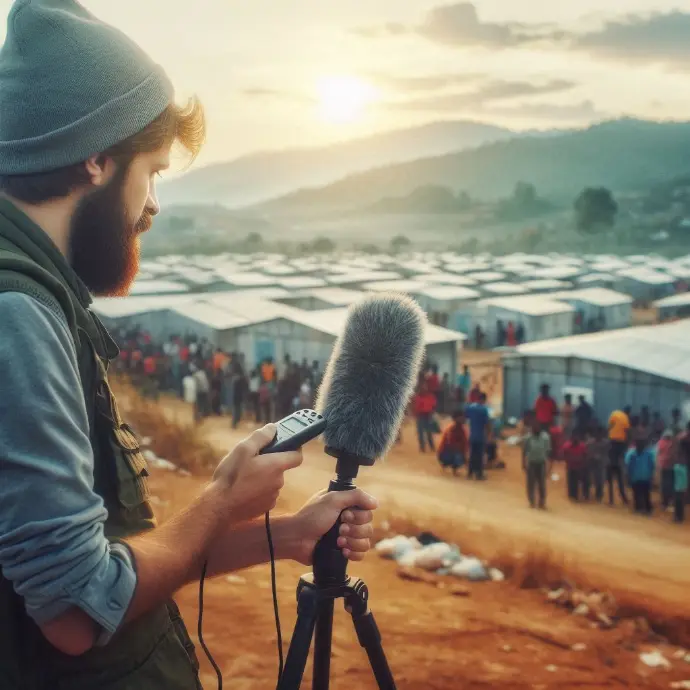
Storytelling in Humanitarian Crises: Ethics and Responsibility in Reporting

Journalism Under Surveillance: The Fight for Source Privacy

Attacks Against Journalists and War Reporters: Silencing the Truth

The Power of Words: Writers and Journalists on the Front Line
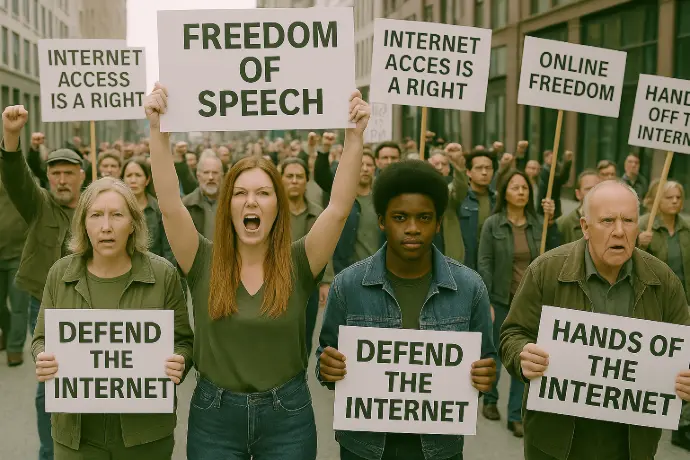
Internet Control: The Fight for Freedom of Expression in the Digital Age
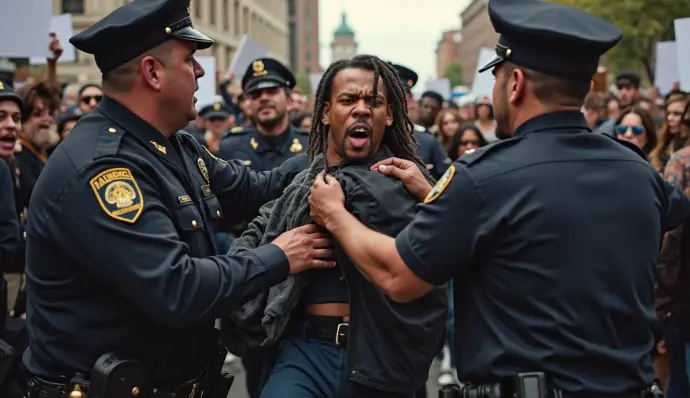
The Right to Protest: Facing Repression in Social Movements

